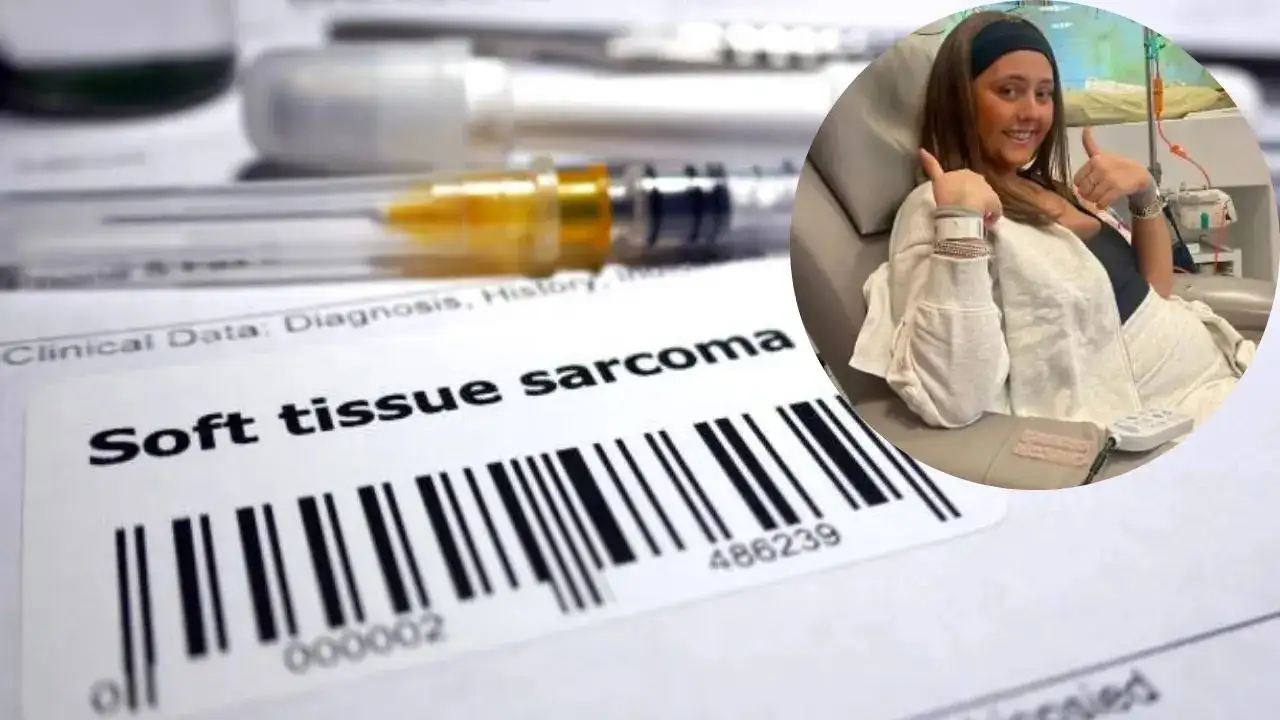
Isobel was diagnosed with sarcoma, a rare type of cancer that originates in the connective tissues of bones, cartilage and muscles
A 19-year-old college student was repeatedly dismissed by her doctor after she complained of excruciating body pains. British Isobel Allen was repeatedly told to take ibuprofen to give her quick relief from aches—headaches, tummy aches, and even painful periods, her mother said.
Eventually, she went to a private hospital, where a slew of tests diagnosed her with sarcoma—a rare type of cancer that originates in the connective tissues of bones, cartilage, muscles, fat, and blood vessels. These cancers develop in various parts of the body, with soft tissue sarcomas often appearing in limbs, trunk, and abdomen, while bone sarcomas typically affect arms, legs, and pelvis.
“The doctors thought she was a teenager making a meal out of nothing. But I knew she wasn't; I knew that the pain she was in wasn't normal,” Isobel’s mom, Sarah, told The Sun. “Isobel felt so strongly—and we do as a family—that medics aren’t listening to these youngsters. They're being misdiagnosed time and time again,” she added.
Sarah said Isobel was 18 when she suddenly developed painful periods and spotting, after which she got an ultrasound, which revealed fibroids and benign growths in the womb. However, the doctors did not take it seriously. Within a few months, Isobel started experiencing “really bad belly ” Sarah says doctors recommended ibuprofen for—and a month later, pain spread to her back and legs. Soon she could not walk. “The only time she was happy or comfortable was if she was in the bath or lying on the settee. She was running baths at three o’clock in the morning. I just knew it wasn’t normal,” Sarah added.
Isobel’s other symptoms included bloating, loss of appetite, night sweats, fatigue, and severe tiredness.
Later, they went to a hospital in London, which did a complete investigation, and then a diagnosis was given to Isobel with her mom and dad there, following a biopsy. The ‘fibroid’ turned out to be a tumour in Isobel’s womb. “They told us Isobel had cancer and it had spread to quite a few places.” Tumours were eventually found in her lungs, hip, and kidneys.
Isobel’s cancer had reached a stage where it was incurable and despite the treatment – chemotherapy and radiotherapy – Isobel passed away within eight months of her diagnosis.
What is sarcoma?
A sarcoma is a rare type of malignant tumour that develops in bone and connective tissue, such as fat, muscle, blood vessels, nerves, and the tissue that surrounds bones and joints. Doctors say the symptoms depend on the tumour’s size and location.
Sarcomas form in various parts of your body – anywhere from your head to your toes:
- 40 per cent occur in your lower extremities, like legs, ankles, feet
- 15 per cent in your upper extremities, including shoulders, arms, wrists, hands
- 30 per cent happen in your trunk or chest wall, abdomen
- 15 per cent occur in your head and neck
What causes sarcoma?
Doctors say sarcomas form when immature bone or soft tissue cells have changes to their DNA, and they develop into cancer cells that grow in an unregulated way. They may eventually form a tumour that invades nearby healthy tissues. Left untreated, the cancer can travel via your bloodstream or lymphatic system from the primary location where it formed to other organs.
Certain factors may raise your risk of developing sarcoma. Risk factors include:
- Exposure to chemicals
- Exposure to radiation
- Lymphedema or long-term swelling on arms and legs
- Certain inherited disorders and chromosome mutations
